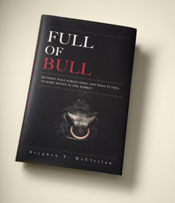
This just in, Facebook announces partnerships with Amway and Tupperware. Facebook founder Mark Zuckerberg reportedly said, “What’s old is new again. In order to bring advertising into Facebook we need the expertise of companies with a solid history of getting people to sell stuff to their friends.”
Multi-Level marketing has entered a whole new phase. The online tupperware party and other alternative distribution systems are the future of retailing. Stores are dead. While some have difficulty distinguishing this approach from a Ponzi scheme, Facebook has managed to avoid the pyramid scheme by not sharing any of the revenue with their members. Facebook participants bear the burden of endorsing products and selling into their network of “friends” without any of the benefit. If the thing blows up, Facebook can always put the blame on its users. After all, what kind of sucker would shill for a product without getting a piece of the action?
One Comment
